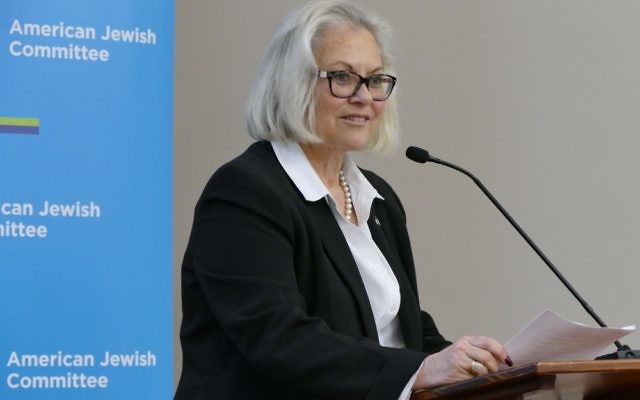No Decision on Closing Israeli Consulate
The fate of the Israel consulate to the Southeast in Atlanta is still up in the air.
The Israeli government has not decided to shut down its consulate to the Southeast in Atlanta, Ambassador Judith Varnai Shorer said in an interview Monday, Feb. 5.
The consul general attended a conference of Israeli envoys in mid-January, and she said the Foreign Affairs Ministry was clear that debate had not begun about which diplomatic missions to close under a mandate to cut the budget between 2019 and 2022.
“There is no decision whatsoever which and where is going to be closed,” Shorer said.
Prime Minister Benjamin Netanyahu’s Cabinet approved a spending plan in early January that called for closing seven of more than 100 Israeli diplomatic missions, and reports indicated that the consulate in Midtown was being targeted.
But the Atlanta consulate survived a similar budget-cutting threat soon after Shorer took her post in August 2015, and there’s almost a year of possible dealing and lobbying before any missions would be closed.
The ministry’s North American division is determined to prevent the closure of any of its representative offices, Shorer said.
During its just-concluded leadership mission to Israel, the Jewish Federation of Greater Atlanta made the case for the consulate based on politics, Atlanta’s booming economy and the growing Jewish community, Shorer said.
Sandy Springs Mayor Rusty Paul, who is traveling to Israel at the consulate’s invitation as one of 30 foreign participants in the 32nd International Mayors Conference from Feb. 11 to 16 and plans to visit his sister city partners in the Western Galilee Cluster, said he hasn’t been officially asked to speak about the possible closure.
“But if asked my opinion about the consulate,” he wrote in an email, “I would underscore its role as a key player in maintaining strong relationships with the Jewish community in the region as well as the deep reservoir of non-Jewish support that exists across the Southeast United States.”




comments